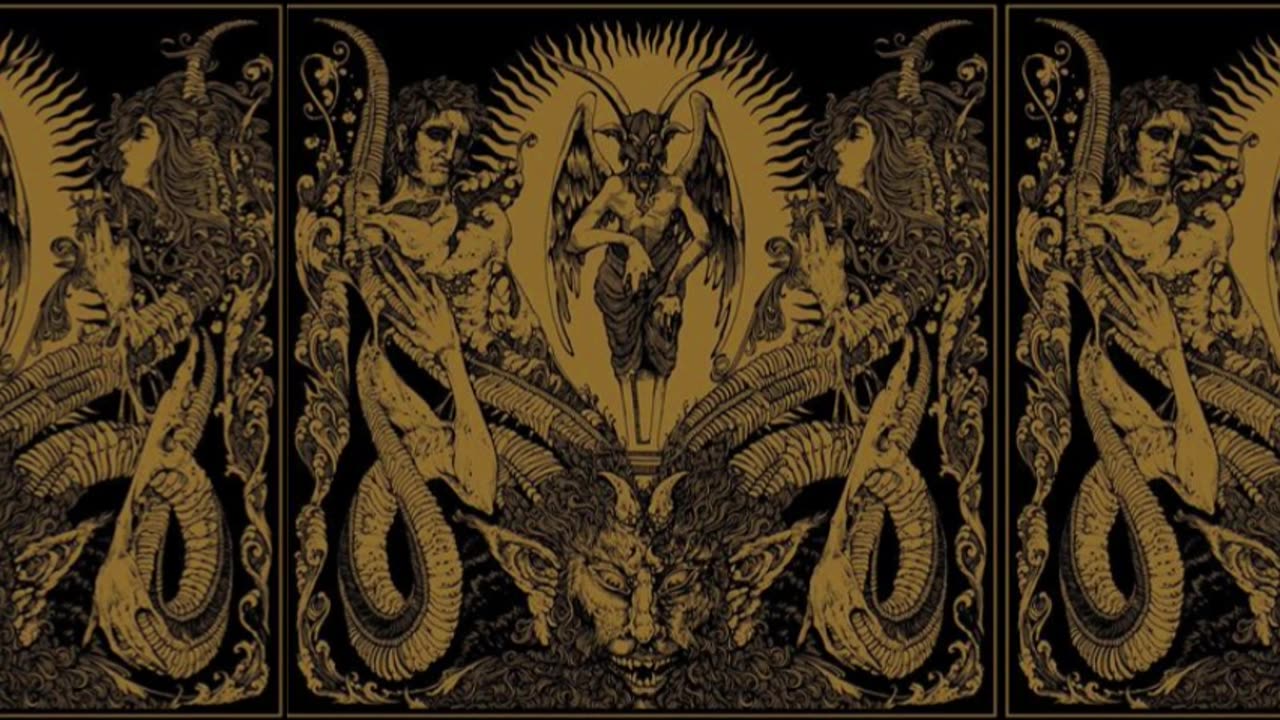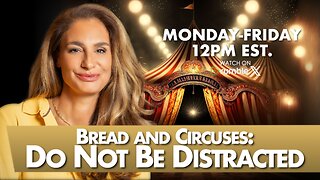Premium Only Content

The Great God Pan by Arthur Machen (1894)
The Great God Pan is Arthur Machen’s most infamous and enduring work of supernatural fiction... first published in 1894, it caused an uproar in Victorian literary circles for its unsettling blend of science, mysticism, and forbidden knowledge. Widely regarded as a foundational text in the genre of metaphysical horror, the novella explores what happens when man attempts to pierce the veil between the material and spiritual realms without understanding the consequences.
The story begins with a controversial experiment performed by a physician named Dr. Raymond, who believes he can enable a human being to perceive the spiritual world by altering the brain. His subject is a young woman named Mary, and while the experiment appears to succeed, it leaves her permanently impaired. Years later, a series of suicides and scandals trace back to a mysterious and alluring woman named Helen Vaughan, whose origins (and very nature) appear increasingly inhuman. As the narrative unfolds through the perspectives of various characters, we come to understand that Helen is not just a person, but the embodiment of something far older and more primal.
At its heart, The Great God Pan is a meditation on the dangers of unearned knowledge and the blurred boundary between science and the occult. It fuses ancient pagan symbolism with late-19th-century anxieties about evolution, sexuality, and spiritual corruption. The titular reference to the Greek god Pan - a deity of nature, chaos, and fertility - is used to represent a raw, ancient force that civilized man cannot hope to control or fully comprehend.
Machen’s prose is rich with suggestion rather than explicit description, making the horror in The Great God Pan psychological and metaphysical rather than physical. The story implies that beneath the surface of reality lies a universe of hidden terror and spiritual vastness - a recurring theme in Machen’s work, and one that mirrors ideas found in mystical and initiatory traditions like Rosicrucianism and Freemasonry. However, while Masonic allegory typically focuses on enlightenment and moral ascension, The Great God Pan is a cautionary tale about what happens when sacred mysteries are desecrated by scientific arrogance.
Banned and reviled by many critics when it first appeared, the novella gained lasting recognition over time, especially among modern horror writers such as H.P. Lovecraft, Stephen King, and Clive Barker. Today, The Great God Pan is celebrated not only for its atmospheric power but for its philosophical depth, posing timeless questions about the limits of human perception and the price of transgression.
About the Author
Arthur Machen (1863–1947) was a Welsh author, mystic, and journalist best known for his works of supernatural and occult fiction. Born Arthur Llewellyn Jones in Caerleon, Monmouthshire, Machen drew lifelong inspiration from the ancient myths, ruined Roman temples, and mist-shrouded hills of the Welsh countryside. Though raised in a devout Christian household, he developed an early fascination with alchemy, ceremonial magic, and the unseen forces beneath the fabric of reality - an obsession that would shape the core of his literary legacy.
Machen’s early life was steeped in classical literature, and he translated The Heptameron of Marguerite of Navarre before turning to fiction. His breakthrough came with The Great God Pan (1894), a tale of mystical transgression and hidden worlds that scandalized Victorian England with its implications of spiritual and sexual horror. This story, along with The White People and The Hill of Dreams, cemented his reputation as a master of the "weird tale", stories in which spiritual dread and metaphysical unease replace conventional terror.
Although he was never a member of any formal esoteric order, Machen’s writings reveal a deep sympathy with the mystical worldview of groups like the Hermetic Order of the Golden Dawn, Rosicrucians, and initiatory societies such as Freemasonry. He believed that the mundane world was but a veil over the divine, and that beneath our ordinary senses lies a realm of beauty, terror, and transcendent truth. Many of his protagonists stumble upon this hidden realm - often at great personal cost.
In his later years, Machen found a second wave of appreciation among literary figures like H.P. Lovecraft, who called him a “modern master of the grotesque.” Today, Machen’s works are studied not only for their literary merit but also for their contribution to Western esoteric thought. His stories remain potent gateways for those seeking the spiritual edge where myth, mysticism, and madness intertwine.
-
 1:57:40
1:57:40
Deus Meum Que Jus
1 month agoIrwin Schiffs Secrets of Living an Income Tax-Free Life Part 1
470 -
 1:28:26
1:28:26
Steven Crowder
3 hours agoThe Left is Violent | Change My Mind
253K584 -
 LIVE
LIVE
The Mel K Show
1 hour agoMORNINGS WITH MEL K - Bread and Circuses: Do Not Be Distracted 10-1-25
735 watching -
 1:01:40
1:01:40
the_edge_of_show
1 hour agoBuilding the Transparency Economy with Benjamin Diggles from Constellation Network
1 -
 1:08:10
1:08:10
The Rubin Report
2 hours agoAOC Doesn’t Realize How Much She Hurt Dems Shutdown Chances by Saying This
29.1K22 -
 LIVE
LIVE
The Shannon Joy Show
2 hours agoTrojan Horse Trump Whores Out To Pfizer AGAIN W/ $70B Deal To mRNA - LIVE W/ Sasha Latypova!
424 watching -
 LIVE
LIVE
LFA TV
14 hours agoLIVE & BREAKING NEWS! | WEDNESDAY 10/1/25
4,233 watching -
 30:49
30:49
Rethinking the Dollar
2 hours agoMarkets Panic: Government Shutdown Sends Gold & Bitcoin Higher | Morning Check-In: Let's Talk...
6.22K -
 1:02:51
1:02:51
Trumpet Daily
1 hour ago $0.56 earnedTrumpet Daily LIVE | Oct. 1, 2025
5.46K -
 1:00:55
1:00:55
VINCE
4 hours agoSOMBRERO-GATE! | Episode 137 - 10/01/25
223K205